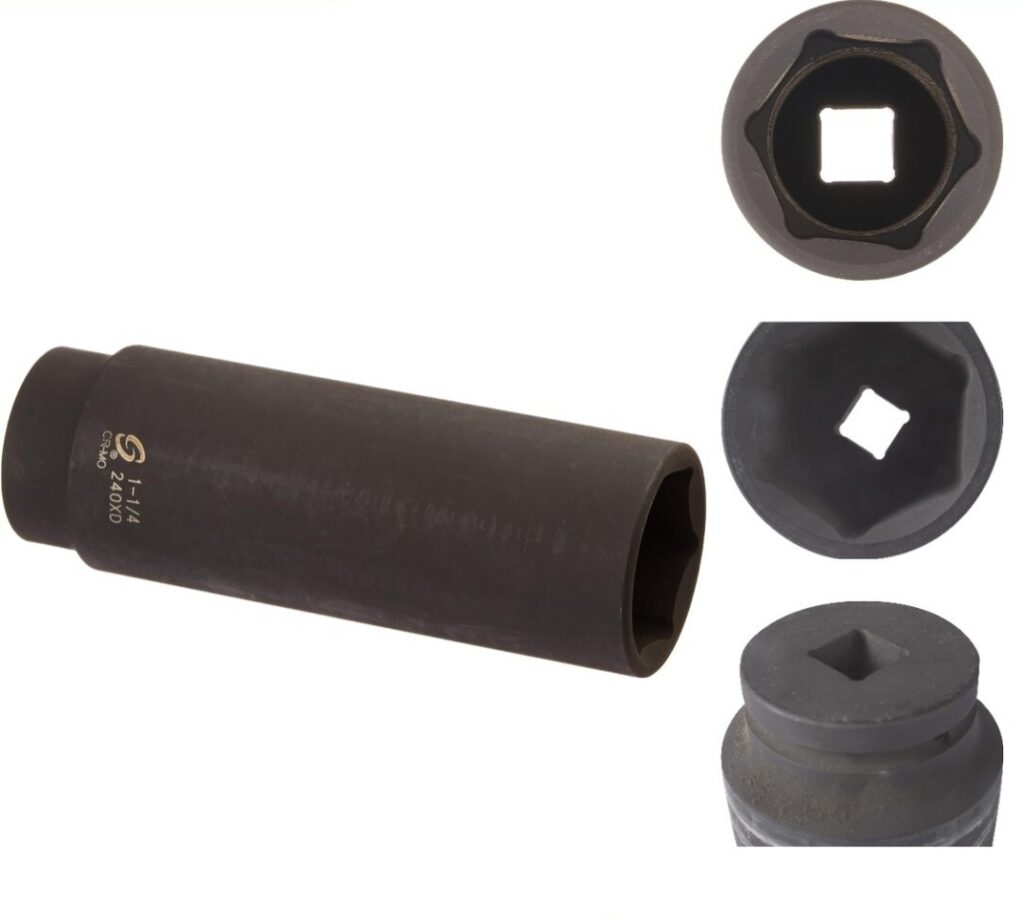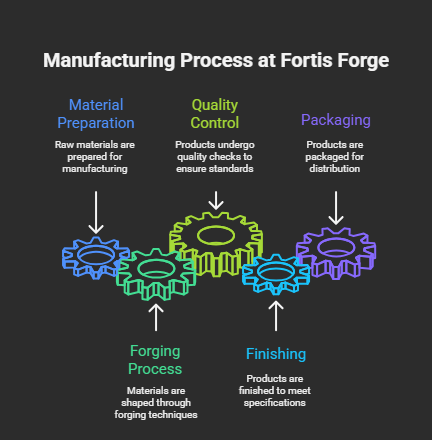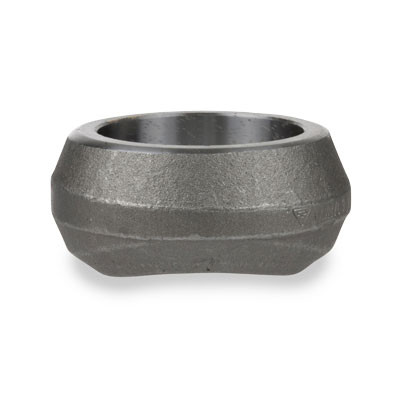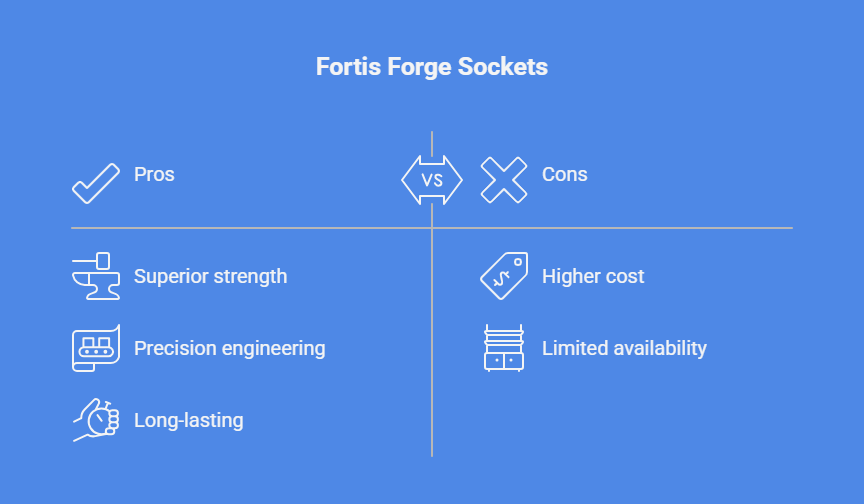Introduction
In industrial and piping systems, strength and reliability are non-negotiable. That is why MS (mild steel) forged sockets designed for heavy‑duty use find vital roles across industries. At Fortis Forge, we focus on pushing the limits of durability, precision, and performance. In this article, we explore how our MS forged sockets stand apart, and how engineers and buyers can choose the best option.
What Is an MS Forged Socket?
An MS forged socket is a socket (or socket‑weld fitting) made from mild steel (MS) using forging methods. It usually features a socket (recess) into which a pipe end fits, and then the outer joint is welded to seal it. This design ensures structural integrity and leak resistance under pressure.
The “forged” aspect means the metal is shaped by compressive forces—improving grain structure and strength over cast or machined parts alone.

Key Features & Benefits
3.1 High Strength & Grain Integrity
Forged sockets maintain continuous grain flow, reducing weak points and cracks. That makes them ideal for heavy‑duty applications.
3.2 Pressure & Temperature Resistance
They handle high pressures and temperatures well. Many MS socket weld fittings support up to 3,000 psi in industrial systems. Buy Industrial Goods Mumbai
3.3 Leak-Proof Joints
Because of the snug socket design and weld perimeter, these components resist leaks.
3.4 Durability in Harsh Environments
Mild steel, when properly heat‑treated and coated, offers resilience under corrosion, abrasion, and load cycles.
3.5 Cost Effectiveness
Compared to exotic alloys, MS is more economical while still delivering solid performance.
Manufacturing at Fortis Forge
At Fortis Forge, we employ advanced forging, machining, heat treatment, and inspection processes. Our facility in Gujarat, India, is built with modern machines and quality labs. fortistechnoforge.com
Here is a process flow chart you might include:
| Stage | Description |
|---|---|
| Raw Material | High quality mild steel billets |
| Pre‑heating | Uniform heating to forging temp |
| Forging | Hammer/press forging into socket shape |
| Trimming & Flash | Removing excess metal |
| Heat Treatment | Hardening, tempering |
| Machining | Precision bore, socket face, weld bevels |
| Inspection & Testing | Dimensional, NDT, pressure test |
(You may create this chart visually for your blog.)
We also maintain tight tolerances and standards in every batch. That ensures consistent quality across lots.

Applications & Use Cases
MS forged heavy-duty sockets serve in:
Oil & gas piping systems
Steam and power plants
Chemical/petrochemical plants
Hydraulic systems and heavy machinery
Mining, infrastructure, and marine pipelines
Because they offer reliable joints, they are preferred where downtime or leaks incur high costs

Design Considerations & Standards
When designing or selecting MS forged sockets, keep in mind:
Socket depth and diameter: Ensure proper insertion length
Weld joint thickness: To maintain strength at the weld
Standards compliance: ANSI, ASME B16.11, MSS for socket weld parts
Pressure class rating: 3000 psi or higher depending on design
Material specs: Grade of MS, carbon content, heat treatment
Note: Many MS socket weld fittings are rated up to 3,000 psi.
Maintenance & Longevity Tips
To extend service life:
Inspect welds periodically for cracks or fatigue.
Apply anti-corrosion coating or paint over exposed MS surfaces.
Monitor exposure to corrosive chemicals or environments.
Replace parts at wear threshold—do not overstay in service.
Stress relief after welding helps reduce residual stresses and distortion.
Using these practices ensures that your heavy‑duty MS forged sockets stay reliable.
Choosing the Right MS Forged Socket
Here is a checklist:
- Confirm pressure rating matches the system.
- Could you check the dimensions and socket depth?
- Please make sure the material grade and heat treatment are correct.
- Verify welding compatibility
- Ask for mill test certificates and NDT reports.
- Consider coating or plating (zinc, phosphate, paint)
- Factor in vendor support, QC, and after-sales
Include a comparison chart like:
| Feature | Generic Forged Socket | Fortis Forge MS Socket |
|---|---|---|
| Yield Strength | 80–90 MPa typical | Optimised with heat treatment |
| Tolerance | ±0.5 mm | ±0.2 mm in critical zones |
| Inspection | Basic QC | Full NDT (UT, MPI) |
| Warranty & Support | Limited | Extended support and traceability |
| Coating Options | Basic paint | Phosphate, epoxy, custom coatings |

Future Trends & Innovations
The industry is moving toward:
Higher-strength steels or alloyed MS modifications
Additive manufacturing + forging hybrid methods
Smart sensors embedded in fittings for early crack detection
Advanced coatings for corrosion and thermal protection
Digital traceability and blockchain-based QC tracking
Fortis Forge is actively exploring these directions as part of R&D.
Conclusion
MS forged sockets for heavy-duty use are foundational to many industrial systems. At Fortis Forge, we combine precision forging, rigorous QC, and engineering support. When you choose our sockets, you secure reliability, performance, and peace of mind.
Contact us today to specify your socket needs and get custom solutions.
